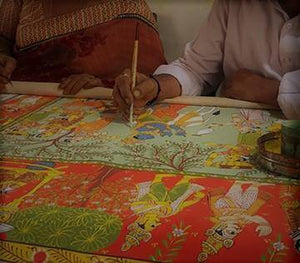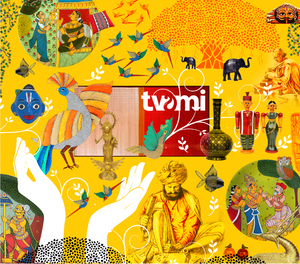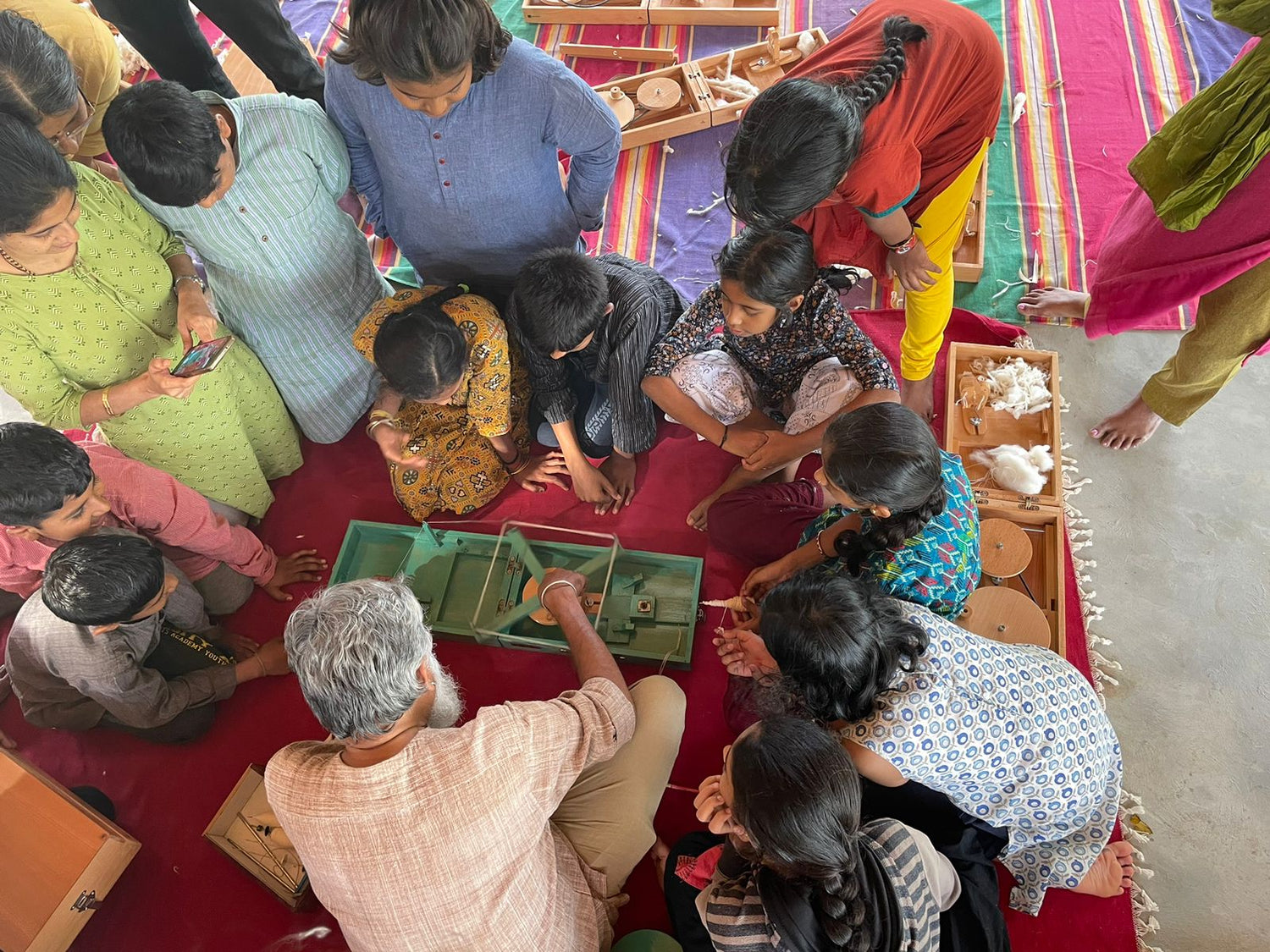The man and his mission
A 4th generation weaver and heir to a formidable legacy, Rajesh Basak is paving the way for traditional handloom to thrive in contemporary times. The only son of National Awardee master-weaver Ramananda Basak, Rajesh has dedicated his life to keep the decades-old technique of handwoven sarees alive, now more popularly known as ‘Phulia Sarees’, deriving the name from his native village of Phulia located in Nadia district of West Bengal.
Rajesh picked up keen interest in following the family legacy after graduating from high-school. He believes weaving is in his blood and having observed his father and grandfather toil their craft at the looms, it was easy for him to learn and ace the skill at an accelerated pace. He isn’t sure if future generations will follow suit and has thus been focussing on not only keeping the traditional practice going but also making it more sustainable and profitable for those associated with it.
Leading the community
Before the start of the pandemic, on an average, 40-45 weavers were continuously engaged in handloom work with Rajesh. The onset of COVID19 raised havoc in their lives as demand completely dried up. At present Rajesh is able to provide work to 20-22 weavers and is expecting a resurgence in demand as the situation gradually improves.
Rajesh’s wife comes from a weaver's family as well and used to help him in his work at the loom. The mother of two later decided to focus on raising the children but continues to support her husband in marketing and business development activities through social media platforms and other mediums. Together, they have been promoting enhanced employment opportunities for women, who already play an instrumental role in supporting weaving operations.
Tools, techniques and preserving heritage
Rajesh and his weavers generally work with pure cotton, matka silk, Chinese silk and linen. He believes the beauty in their work stems from their integrity and shares that they have never taken any shortcuts like weaving sarees on power-loom nor do they use any synthetic yarns to sell at a cheaper price.
While upholding traditional practices, a few tweaks have been made to keep these handwoven treasures relevant in contemporary times. Increasingly, sarees are woven without starch, making them more comfortable to wear. Another change incorporated is to include fabric for the blouse with the saree.
Family glory and personal goals
Ramananda Basak won the National Award in 2009, and was later felicitated with the Award of Excellence for Handicrafts by World Crafts Council (WCC) in 2018. Mastering the skill and carving out a niche for himself with his own designs, Rajesh has his eyes set on winning the National Award, like his father before him.
‘This will add another feather to the decorated hat of the famed weaver community of Phulia’ says Rajesh Basak, resonating his confidence and self-belief that he shall achieve his goal.



